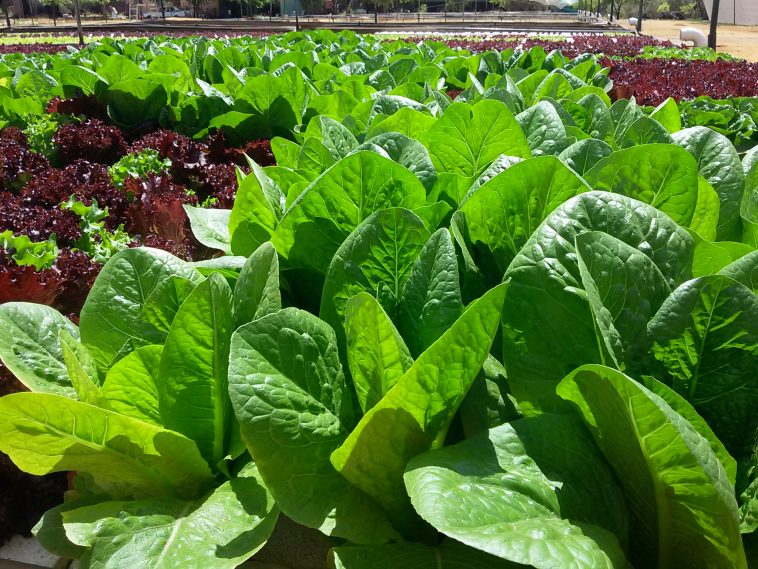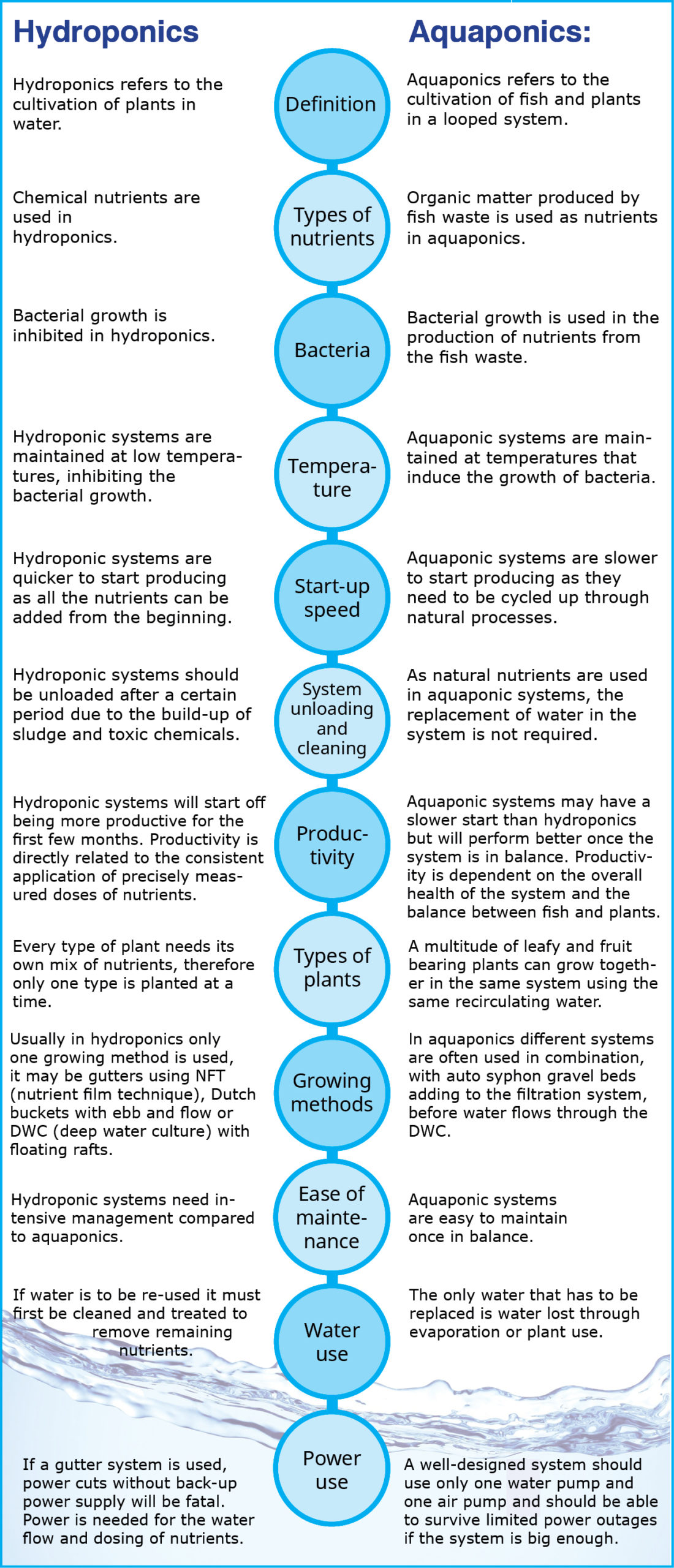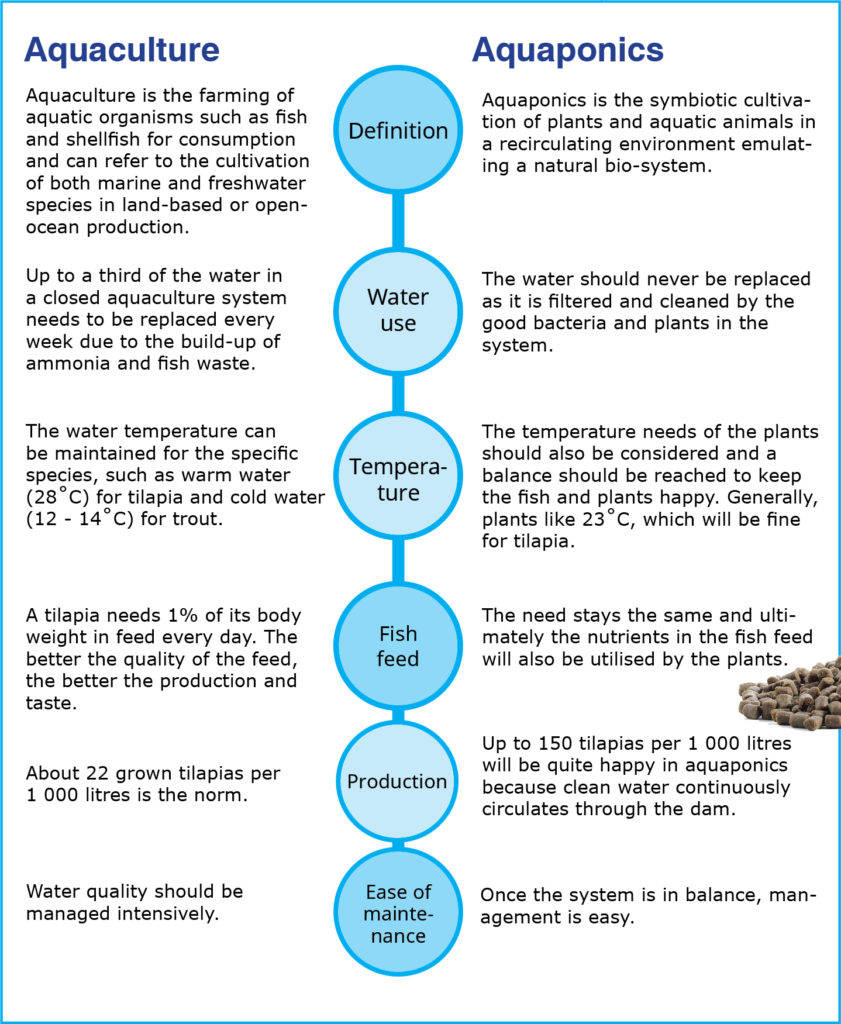
Last month we started this series looking at factors you need to consider before starting with aquaponics.
In this issue we answer the question:
Why aquaponics?
Difference between aquaponics and hydroponics:
What makes it different to or better than hydroponics? Also, what is the difference between using fish in aquaponics and a traditional aquaculture system?
Aquaponics is a highly sustainable method of agriculture; mainly because it is a self-contained ecosystem that mirrors nature. Contrary to hydroponics, aquaponics does not need the addition of chemical nutrients for the plants, as the fish waste provides these nutrients to the plants.

Difference between traditional aquaculture and aquaponics:
Compared to aquaculture, aquaponics systems do not have a build-up of wastes in the system that causes the water to become toxic. Aquaponic systems utilise this waste, with the bacteria converting the ammonia into nitrites and nitrates, which the plants then consume as their main nutrient source.

Conclusion
Hydroponics and aquaponics are two types of methods used in agriculture to grow plants on water. Chemical nutrients are used in the form of fertilisers in hydroponics, while fish waste is used as the source of plant nutrients in aquaponics. The main difference between hydroponics and aquaponics is the type of nutrients used in each method.
Primary benefits of aquaponics are:
- Aquaponics use 90% less water to grow the same amount of vegetables as in any other growing system.
- No water goes to waste. The water is continually recirculated.
- Aquaponic systems can be built on non-arable land that can’t be used for conventional agriculture; therefore cheaper land.
- Fish is part of the equation – the fish convert the fish food and provide the nutrients and ammonia. The fish is sold once they reach market weight, covering the running costs.
- Vegetables in the DWC system are harvested daily with new plants also being transplanted daily, providing a steady cash flow from the start.
- Systems can be erected close to cities, highways and the market, saving a lot on transport costs.
- There is a growing demand for healthy food produced without chemical fertilisers, herbicides and pesticides. Aquaponics is the answer.
Statistics of aquaponics compared to traditional farming are:
Reduced water usage – up to 90%
Increased yields – up to 30%
Accelerated plant growth – up to 200%

